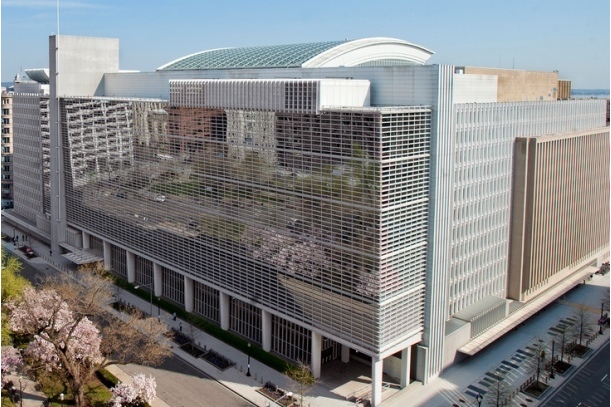Latest News
World Bank projects 3.4 percent GDP growth for sub-Saharan Africa in 2019

News Highlight
Nigeria's GDP growth rate is expected to rise from estimated 1.9 percent in 2018 to 2.2 percent in 2019 on the back of oil production recovery.
In its 2019 Global Economic Prospects Report released on Tuesday, the World Bank projected Sub-Saharan Africa’s economic growth to accelerate to 3.4 percent in 2019, from an estimated 2.7 percent in 2018. This outlook is predicated on diminished policy uncertainty and improved investment in large economies on the sub-continent, together with continued robust growth in non-resource-intensive economies.
In Nigeria, the largest economy in the sub-region, growth is expected to rise from estimated 1.9 percent in 2018 to 2.2 percent in 2019, on the back of oil production recovery. Angola and South Africa are also expected to record 2.9 percent and 1.3 percent growth in 2019, respectively, compared to -1.8 percent and 0.9 percent, respectively in 2018.
The World Bank projected a slower GDP growth rate for the global economy from 3 percent in 2018 to 2.9 percent in 2019. Growth among advanced economies is also projected to drop from 2.2 percent to 2 percent, while emerging market and developing economies growth is expected to stagnate at 4.2 percent.
“At the beginning of 2018, the global economy was firing on all cylinders, but it lost speed during the year and the ride could even get bumpier in the year ahead (2019),” said Kristalina Georgieva, World Bank CEO. “As economic and financial headwinds intensify for emerging and developing countries, the world’s progress in reducing extreme poverty could be jeopardized. To keep the momentum, countries need to invest in people, foster inclusive growth, and build resilient societies.”
Other findings made by the World Bank in the report show the informal sector accounts for about 70 percent of employment and 30 percent of GDP in emerging markets and developing economies. The report also shows debt vulnerabilities are rising in low-income countries; and policies aimed at softening the blow of global food price swings can have unintended consequences if implemented by many governments in uncoordinated fashion.
“As the outlook for the global economy has darkened, strengthening contingency planning, facilitating trade, and improving access to finance will be crucial to navigate current uncertainties and invigorate growth,” said Ceyla Pazarbasioglu, Vice President for Equitable Growth, Finance and Institutions at the World Bank.
Related News
Latest Blogs
- How Tinubu is ensuring equitable access to public services
- Nigeria’s economic reform faces new threats
- What Ould Tah’s tenure at BADEA reveals about his AfDB candidacy
- Implementation strategy crucial for the success of 12-4 education policy
- A senator’s suspension threatens the right of representation
Most Popular News
- Artificial intelligence can help to reduce youth unemployment in Africa – ...
- Tariffs stir inflation fears in US but offer targeted industry gains ...
- Nigeria records $6.83 billion balance of payments surplus in 2024
- Tinubu appoints new Board Chair, Group CEO for NNPC Limited
- CBN net reserve hits $23.1 billion, the highest in three years
- Soaring civil unrest worries companies and insurers, says Allianz









